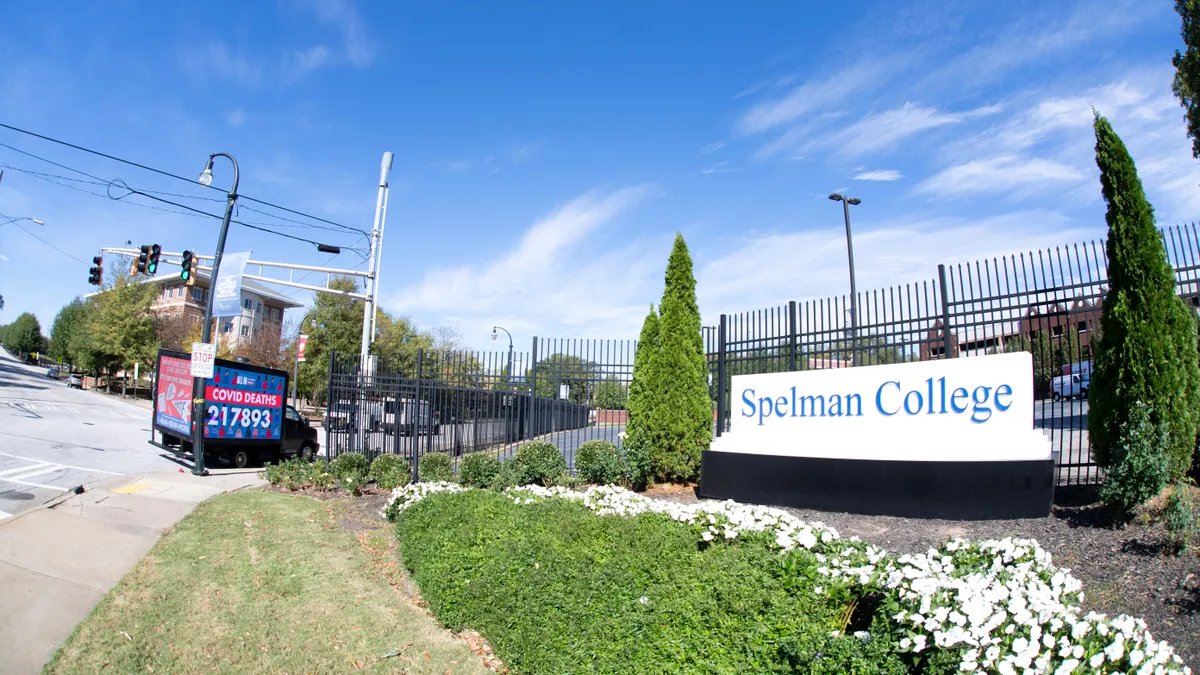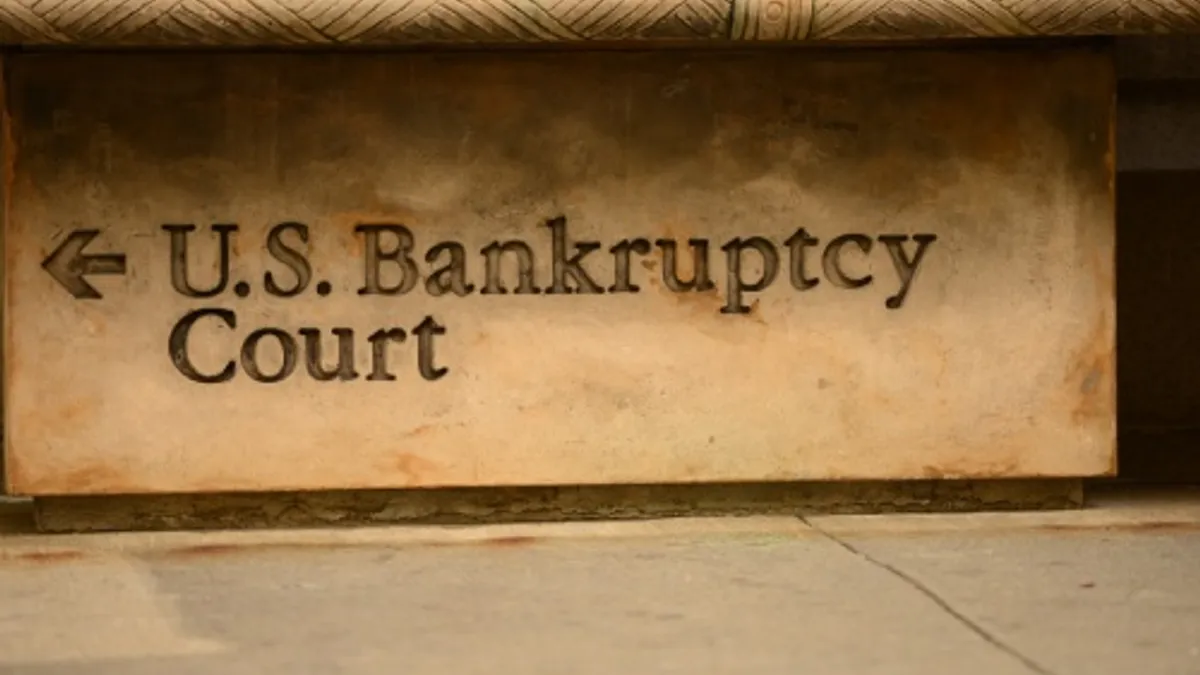Spelman College entered the worlds of online education, adult learning and upskilling Aug. 11 when it announced the creation of eSpelman.
The new online program could be seen as a leap for Spelman, a 2,100-student historically Black liberal arts women's college dating back to 1881. The college, in Atlanta, touts itself as the leading producer of Black women earning doctorates in the science, technology, engineering and math fields.
eSpelman offers certificates for working adult learners of all genders. Certificates cover areas spanning leadership, project management, teacher preparation, conversational Spanish, and diversity, equity and inclusion. Students can access the program directly or through Guild Education, a company that partners with employers and colleges to offer workers upskilling and education benefits.
But it's not as big of a departure from Spelman's traditional work as it might seem at first glance, according to Tiffany Watson, Spelman's associate provost for executive projects and initiatives. She says eSpelman is a perfect fit for the college's historic mission and values — and that it's a natural outgrowth for the students Spelman serves.
Higher Ed Dive spoke with Watson about eSpelman, her goals for the new program and how she sees it fitting into the unfolding future of online higher education.
Editor's note: This interview has been edited for brevity and clarity.
HIGHER ED DIVE: Why is this the right time for Spelman to start an online certificate program for adults?
TIFFANY WATSON: This has been a process for us to develop an online enterprise, and it started with the thought of Spelman wanting to leverage what we do well in teaching and learning excellence. We want to bring what we have — what we have started calling the Spelman Magic — to a very particular population of learners.
As we started to explore over the last 2 ½, 3 years, with our consultants and other partners, we landed on, "We could do something really awesome for adult working learners, particularly adult working learners who were looking for and interested in quick, comprehensive, signature, well-developed upskilling programs that would allow them to leverage what they learned to advance in their carers."
Spelman does something magical with the way that our faculty develop their course content, and it's from the lenses of conversations around race, gender, social justice. All of those very important pieces are foundational, fundamental for the way that our faculty develop their courses. It's critical at this time for working adult professionals to really understand how to leverage that knowledge for leading teams, managing people and understanding culture.
We do that at Spelman. And the way we do that is training and educating women to understand cross-cultural communication, to appreciate the specialities of people and to be able to take that knowledge and leverage it when they leave Spelman College.
We've done a lot of research on how to leverage the magic of Spelman. We are the experts in the training and education of Black women. We are the experts in the training and education of all women. Why not offer it to working adults that want something different than what's out there, who want something special?
Who do you hope enrolls?
We want everyone to enroll in these certificate programs: all genders, all races, all ages. We want everyone to look at eSpelman and say, "That is the place for me." Yes, we are experts and leaders in the development of Black women, but we educate all people here. We have men who take classes here. They register at Morehouse College, but they're still taking classes at Spelman.
We want everyone to feel like they have a home at Spelman to get the credentials and power and learning and the confidence they need.
How many students do you hope to enroll?
I'm hesitant to say, exactly. We're hoping to have a really great showing in year one through year five, and we want to see a lot of newly enrolled learners in our program. I don't want to say a particular number because I don't want to put it out there that we're going to go too big, but we are optimistic.
Is this something that will be revenue positive, or profitable?
It must be revenue positive. When we speak about that, I want to speak about it from the perspective of how eSpelman will also serve and support our undergraduate student population.
We want to make sure we're creating new scholarship opportunities for our current undergraduate students and our current student population. We see it as a strategy for minimizing the debt that our undergraduate students are leaving Spelman with, but we also see it as an opportunity to support our working adult learners — to shrink the wealth gap.
As a liberal arts college, does Spelman have the experience with adult learners needed to be successful in this space, which is highly competitive?
Our faculty actually had the same question when we asked them to build programs with adult working learners. "Wait a minute. We serve undergraduate students, typically between the ages of 18 and 22."
And they realized quickly all of our students are working adult learners. Our transfer students are working adult learners. Our commuter students are working adult learners. Our staff, some of them enroll in the PEDS Program, [which is for] working adult learners who took a break and have stopped out.
So Spelman has 140 years of experience with working adult learners. It was just about socializing and putting it in the context of where folks understood we're already experts at this.
Did the pandemic speed or hinder this launch?
Because folks were more familiar with online learning, digital strategies and those different types of things, it probably kicked things up a notch for us. So when I go to faculty or different parts of campus to say, "Hey, I need this function to help with this," they're already familiar.
What did we miss?
I want you to be as excited as we are.
eSpelman is awesome. It goes beyond just certificate programs. There is an element of community-building. We want our adult learners to complete their programs at Spelman feeling very similar to how our alumnae feel. They feel like they have a home, like they were connected, that they were empowered and that they can take what they learn in the classroom and apply it to their working lives.






















